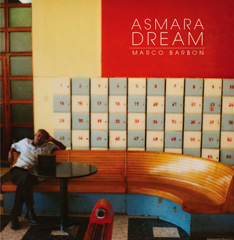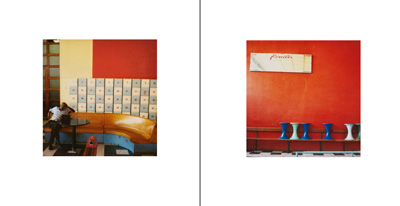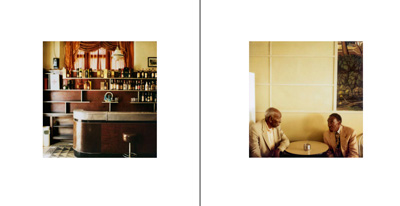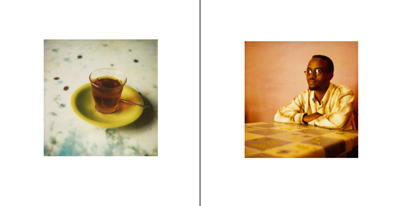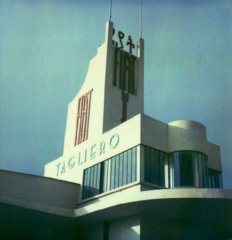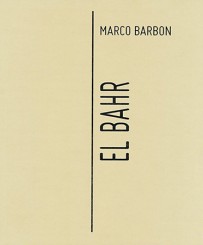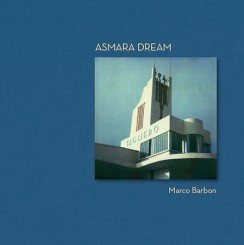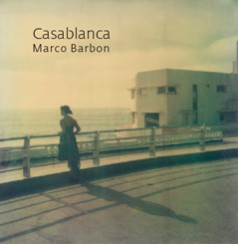The dream is a break open a hole in the fabric of time. In a dream everything seems to have another rhythm, another course, both things that people are more air, more subtle, more abstract, as if they were suspended in a limbo outside of time. The same impression takes us by browsing this book: the counter of a cafe, the facade of a building, a man reading his newspaper, the sign of a store … before all this one wonders what time are we, in this or in some hidden place in our memory.
But time passes. The extraordinary architecture rationalists, the remnants of a golden age, age irreparably; traces of the past fade under the relentless sun of high plateau, even dreams of independence seems to gradually lose its consistency … What will remain, then the dream of Asmara?
- 20/09/2016 Asmara Dream par Caroline Mallet (Réponses Photo)
- 15/07/2010 Asmara Dream par François Lecocq (Let's Motiv)
- 01/08/2009 Nostalgies asmarines - Brigitte Ollier (Libération)
- 15/07/2009 Asmara Dream (Choix des libraires.com)
- 15/06/2009 Déclic Photo (Déclic Photo)
- 11/06/2009 Asmara Dream (Polka Magazine)
- 15/04/2009 Entretien Marco Barbon - Africulture (Site Africulture)
Marco Barbon
Photographe
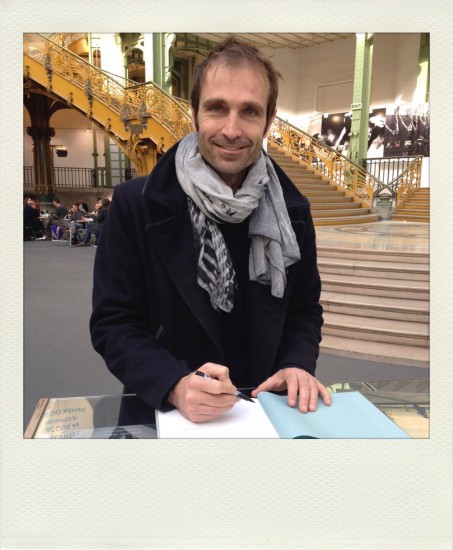
Marco Barbon was born in Italy and lives in France, between Paris and Marseille.
After a PhD in Aesthetics of Photography at EHESS in Paris, he began a personal artistic research, which emerge his two favorite issues: firstly temporality, on the other this border area between reality and fiction the photographic medium, both documentary and fictional tool device is particularly suitable for return.
Author of Asmara Dream books (Filigranes, 2009, reprinted in 2016), Cronotopie (Trans Photographic Press, 2010), Casablanca (Filigranes, 2011), Les pas perdus (Pursuit, 2014), Asmara (Be-Poles, 2014) and El Bahr (Filigranes, 2016), his photographs have been the subject of several publications in the international press and are regularly exhibited in France and abroad.
